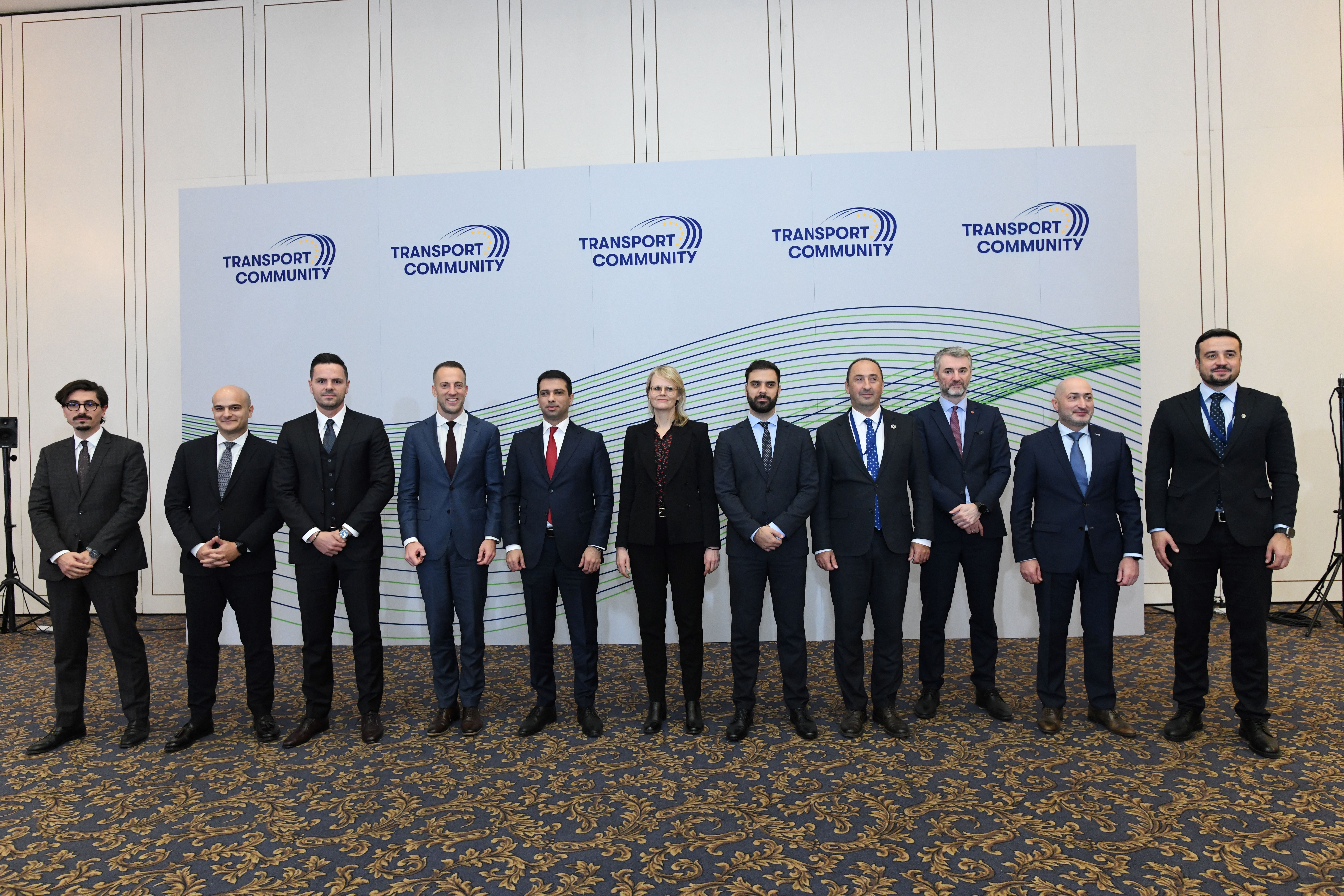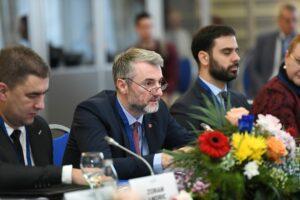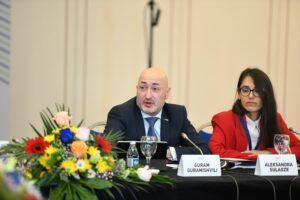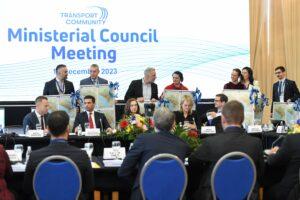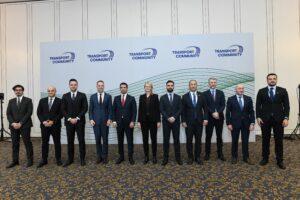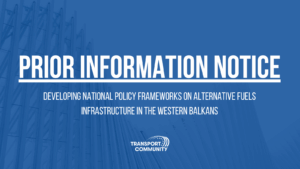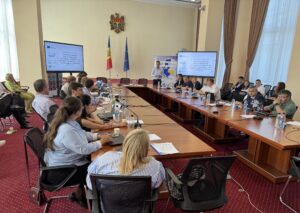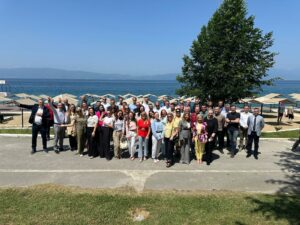SKOPJE – The annual Ministerial Council Meeting of the Transport Community took place in Skopje on 12 December where transport ministers from the Western Balkans, Georgia, Moldova, and Ukraine, as well as the European Commission, gathered to discuss reforms concerning the region’s transportation networks, alignment with EU legislation and standards, and transport’s social aspects. The meeting, which took place both in-person and online, showcased a commitment to fostering stronger collaboration and connectivity between the region and the EU.
Minister of Transport and Communications of North Macedonia, H.E. Mr Blagoj Bochvarski, said that the Agreement on the establishment of the Transport Community is of essential importance and it contributes to the Regional Partners of the Western Balkans to go through the process of accession to the European Union more easily by harmonising domestic legislation with the EU. „The activities related to this Agreement led to the strengthening of regional cooperation, but we still have work to do in order to realise the activities determined in the Action Plans in order to achieve the common goals,” Minister Bochvarski underlined.
Director-General for Mobility and Transport at the European Commission, Ms Magda Kopczyńska, underlined that 2024 will be a crucial year for the Transport Community. She urged members to redouble efforts on reforms and to implement the EU transport acquis. The region can count on the EU’s support as it moves forward.
Welcoming the participants and thanking Minister Bochvarski for hosting the meeting, Mr Matej Zakonjšek, Transport Community Permanent Secretariat’s Director pointed out that today’s Ministerial Council meeting covers crucial points for enhancing connectivity and transport in the Western Balkans and in the Observing Participants.
During the meeting, the ministers endorsed the Progress Report of Acquis Transposition and TCT Action Plans and emphasised the collective commitment to aligning the legislative frameworks as a key step towards the closer integration of transport markets within the Transport Community. The ministers acknowledged, as outlined in the report, that the progress in the implementation of the action plans has been gradual during this reporting period, with a need for an increase in the implementation pace.
The ministers then turned their attention to the development of the indicative extension of the Trans-European transport network between the European Union and the South East European Parties. The Regional Steering Committee’s report on indicative TEN-T extensions of the Comprehensive and Core Network in the Western Balkans for 2023 highlighted that the progress towards compliance with specific key TEN-T indicators remained steady and, in some instances, even accelerated.
The ministers also noted that progress has been made in implementing the Economic and Investment Plan flagship projects, yet the pace of progress needs to accelerate. In this vein, the new Growth Plan, adopted by the European Commission on 8 November, offers a good opportunity to further strengthen the implementation of the Economic and Investment Plan. Finally, they noted that regional cooperation keeps improving, strengthening ties between regional partners, and paving the way for the synchronised implementation of the TEN-T Network
For the first time, to replicate the same approach as in the case of the Western Balkans, the Ministerial Council discussed the initial reports on Georgia, Moldova, and Ukraine’s transposition of EU Acquis and compliance with the TEN-T network. The discussion included interventions by Observing Participants, providing a platform for constructive dialogue and collaboration.
Social issues under the Transport Community Treaty were also a key point of discussion, with the ministers acknowledging the conclusions from the Social Forum of Transport Community and endorsing the Action plan for the implementation of the EU Acquis in the area of social issues and passenger rights.
The meeting concluded with the presentation of the benefits that the newly established Transport Observatory Database/Information System (TODIS) offers to the key stakeholders, offering a comprehensive overview of the region’s transportation landscape, supporting data-driven decision-making.
On the margin of the meeting, the ministers also witnessed the official launch of the Safe and Sustainable Transport Programme, emphasising their commitment to advancing environmentally friendly and secure transport solutions across the region. With EUR 495 million in investments, the Programme will be instrumental in supporting projects related to road safety improvements, alternative fuel infrastructure, and intelligent transport systems.

